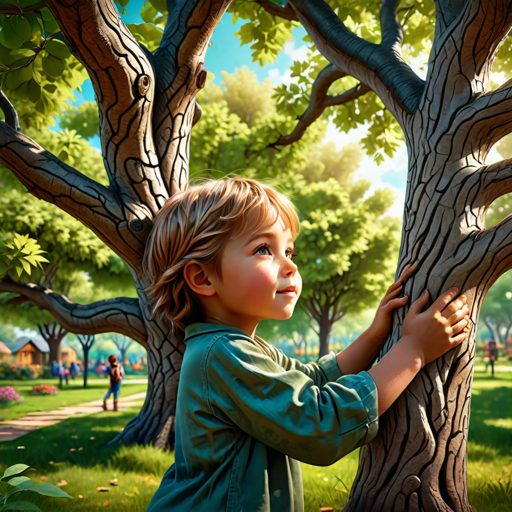
Redefining “Nature”: Are We Part of It?
Recommended for Environment
Have you ever paused to ponder the meaning of the word “nature”? Does it evoke images of untouched wilderness, far removed from the clamor of human existence? Or, like the intricate roots of a banyan tree, does it encompass us as well?
This question, as old as time itself, is now at the heart of a fervent campaign aptly named “We Are Nature.” A coalition of lawyers and designers is urging dictionaries to redefine “nature” to include humans. Imagine, if you will, a world where our very language acknowledges our intrinsic connection to the living tapestry of Earth.
In this exploration, we will delve into the following:
- The power of words to shape our perception of the world and our place in it.
- The historical roots of our separation from nature and the scientific evidence that challenges this notion.
- The potential consequences of this separation, both for our planet and ourselves.
- The ongoing campaign to redefine “nature” and its implications for a more sustainable and interconnected future.
Join us as we journey through the intricate web of language, science, and philosophy to uncover the deeper meaning of nature and our place within it.
Words as Seeds of Change
Words, like seeds, have the power to shape our thoughts, our actions, and ultimately, our world. The way we define “nature” influences how we perceive our place within it. If we see ourselves as separate, as the Oxford English Dictionary currently suggests, we risk perpetuating a dangerous disconnect.
This detachment, born from the rationalist worldview of the 17th century, has led to a mechanistic view of nature—a view that has justified exploitation and fueled environmental degradation. But science tells a different story. It reveals the intricate dance between humans and the natural world, a dance in which we are both participants and choreographers.
Unraveling the Myth of Human Exceptionalism
From the intricate symphony of neurons firing in our brains to the bustling microbiome that thrives within us, we are inextricably linked to the intricate web of life. To deny this connection is to deny our very essence, our fundamental nature.
Yet, the meaning of “nature” has been twisted and manipulated over time, often excluding humanity from its embrace. This artificial divide, rooted in historical and philosophical constructs, has led us down a path of environmental exploitation and ecological crisis.
But language is not immutable. It’s a living, breathing entity that evolves alongside our understanding of the world. As science unveils the profound interconnectedness of all living beings, it challenges us to re-examine our vocabulary and embrace a more inclusive definition of nature.
A Language of Connection
The “We Are Nature” campaign is not merely a linguistic exercise. It’s a call to action, a plea to rewild our language and, in turn, rewild ourselves. By reshaping our lexicon, we can foster a deeper sense of connection and responsibility towards the natural world.
Imagine a generation of children who grow up understanding that they are not separate from nature but an integral part of it. They would inherit a legacy of stewardship, valuing the environment not as a resource to be exploited but as a home to be cherished and protected.
Reclaiming Our Bond with the Wild
Let us move beyond the cold, calculating language of “natural capital” and embrace words that ignite our sense of awe and wonder. Words that remind us of the breathtaking beauty, the intricate complexity, and the delicate fragility of the natural world.
The subtle shift from “nature” to “environment” in our vocabulary reflects a growing disconnect, a perception of humans as separate entities rather than active participants in the ecological symphony. But the tide is turning. The Oxford English Dictionary’s recent acknowledgment of a broader definition of “nature” that includes humans is a testament to this shift.
The “We Are Nature” campaign beckons us to reclaim our place in the natural world, to embrace our wildness, and to celebrate the interconnectedness of all living beings. By changing our language, we can change our mindset, our actions, and ultimately, our relationship with the planet.
Let us use words that connect us, that inspire us, and that remind us that we are not just in nature, but of nature.
Watch a video
One Earth: A Visual Symphony of Our Fragile Planet!
Curious Times is a leading newspaper and website for kids. We publish daily global news aligned to your learning levels (also as per NEP 2020): Foundational, Preparatory (Primary), Middle and Senior. So, check out the News tab for this. We bring kids’ favourite Curious Times Weekly newspaper every weekend with top news, feature stories and kids’ contributions. Also, check out daily JokesPoke, Tongue Twisters, Word of the Day and Quote of the Day, kids need it all the time.
Curious Times News Program for Schools for FREE. Over 5,000 schools and teachers from all over the world have joined our programme so that students and teachers can get FREE Educative Newspaper. Here, kids can take part in world events and win prizes and certificates for free through their schools.
Moreover, schools are sharing important School News, like interviews with the principal, notices about new students, contests, and results, not just on social media but also on a news website for kids and other schools.
Thus, do not wait any further, sign-up for your school for FREE.
The following social media platforms allow you to communicate with us: WhatsApp, Instagram, Facebook, Youtube, Twitter, and LinkedIn.
0 (Please login to give a Curious Clap to your friend.)
